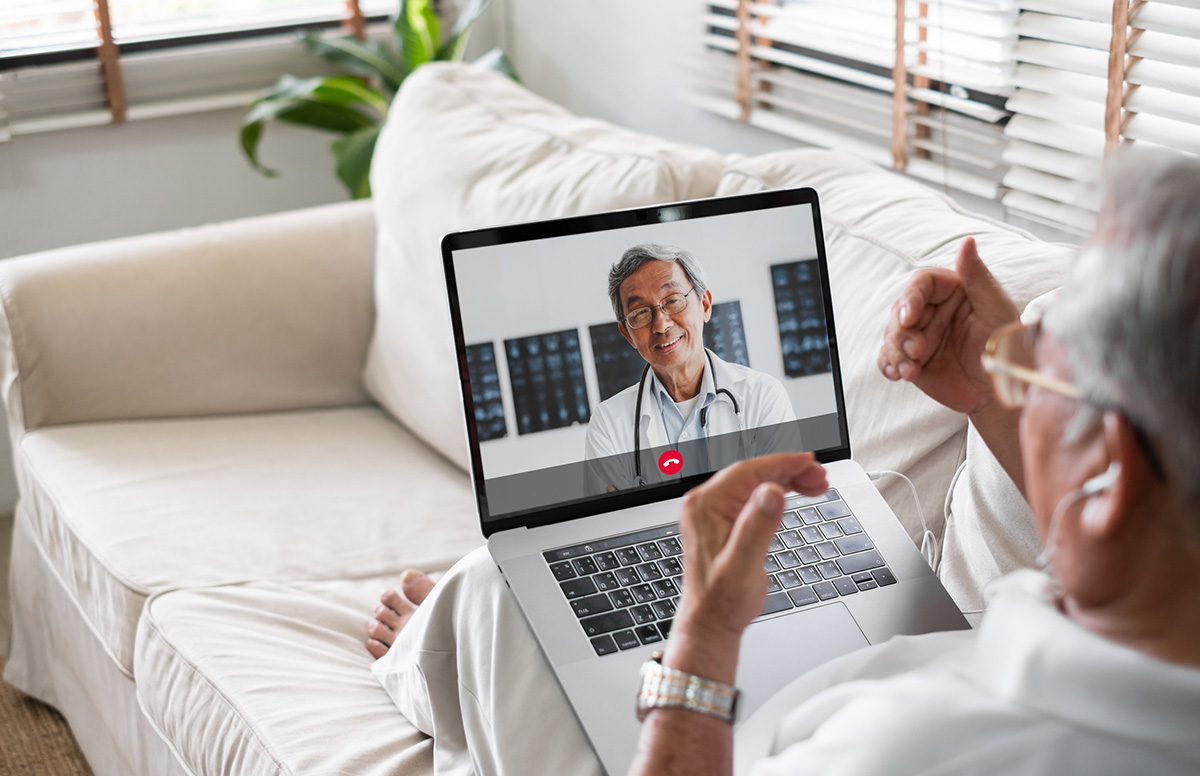Recap of Senate COVID-19 Flexibilities Hearing
Much of the focus of the hearing was on telehealth and investigating how best to continue those flexibilities. There was broad support Committee-wide, on both sides of the aisle, for continuing telehealth flexibilities but several specific themes were raised by multiple Senators and witnesses. Most of the telehealth during the pandemic, according to GAO, was used by those under-65, for mental health visits, and in urban areas.
Payment
Dr Robert Berenson, a long time Medicare payment policy expert discussed how the Medicare fee schedule and its assignment of payment based on relative value units (RVUs) was not designed with telehealth in mind. He promoted a wholesale updating of the RVU system – not a one time fix or exception for telehealth – to modernize the program. He also noted that if the same paperwork and administrative overhead across multiple payers has to be utilized for telehealth services as well as in person services, the cost of the telehealth visit is likely not even worth billing and he is afraid, may not even happen.
He and Jessica Farb from the Government Accountability Office (GAO) really promoted that more time was needed to look at how telehealth should be paid for and suggested allowing for some more time for the flexibilities to be in place where further study could take place. MedPAC made a similar recommendation earlier this spring.
Quality
All of the Senators asking questions about telehealth seemed to agree that it had the potential to increase access to care (and did during the pandemic). However, there was a lot of concern about the quality of that care. A number of the witnesses and Senators discussed the need to monitor quality and Ms. Farb from GAO got a lot questions about monitoring. She said that NCQA and NQF are actively working in this space. She also mentioned that CMS lacks information on the originating site and modality among other things which would be helpful in monitoring access, quality, and other areas.
Disparities
There were many questions about making sure that there is equal access and that a two-tiered system of access is not created. Several Senators had concerns about access in rural areas as well as access amongst marginalized communities. There was discussion of making sure physical infrastructure for broadband keeps up with advances in technology, that provider payment arrives for flexibility to provide infrastructure as well. The issues related to rural access and the importance of provider payment were particularly emphasized in the testimony from Dr. Murali from the Marshfield Clinic who was testifying on behalf o the America’s Physician Groups. Dr. Davis from America’s Family Physicians discussed the role of federally qualified health centers, behavioral health coverage, and other topics that relate directly or indirectly to health disparities.
Audio-only
There were numerous questions about audio only technology spanning all of these issues and more. Most of the Senators supported audio only visits, especially those who represent rural areas. There were several concerns about payment and monitoring for fraud, waste and abuse as well as what services are appropriate via audio only telehealth and how to compare to video or in person visits. At least half, if not more, of the senators who asked questions asked about audio only telehealth in some form. Senator Cortez-Masto (D-NV) specifically mentioned H.R. 2166/S. 150, one of our major priorities for PACE programs.
Care in the home and community generally
There was also a lot of discussion of the need for more support for care in the home and community. A number of our priorities in this space mentioned:
- Senator Brown (D-OH) mentioned the work on expanding hospice respite care that we have been working with his office on and Chairman Wyden said his staff would follow up on the important idea.
- Senator Hassan (D-NH) discussed the HCBS Access Act and the need to support home health care workers more fully
- Senator Whitehouse (D-RI) mentioned the importance of advanced illness care pre hospice and the ability to utilize waivers across the home health and hospice benefits in order to achieve that goal. He asked that GAO look at the impact of the COVID 19 waiver on homebound status in home health and its impact which GAO said they would do.
- Senator Casey (D-PA) mentioned the PACE Plus Act and the need to expand PACE.
- Senator Lankford (R-OK) mentioned the three day stay rule and the witness from Marshfield clinic mentioned how much less burdensome the ACO and Medicare Advantage environments were in this respect since the 3-day stay rule can be waived as appropriate. He stated it works much better for patients and lowered costs.
Other topics
Dr. Linda DeCherrie, one of the witnesses, participates in a longstanding Hospital at Home program which she discussed in her testimony and answered some follow up questions on. Some Senators mentioned making the acute hospital at home waiver permanent in their questions and no opposition was raised during the hearing.

Most Recommended
April 22, 2024
CMS Finalizes Nursing Home Minimum Staffing Standards
April 21, 2024
 Older Americans Month 2024: Suggested Schedule
Older Americans Month 2024: Suggested Schedule
April 24, 2024
 Salary Threshold for White Collar Overtime Exemptions Raised
Salary Threshold for White Collar Overtime Exemptions Raised
April 12, 2024
Improving Medicare Advantage
Recently Added
May 07, 2024



